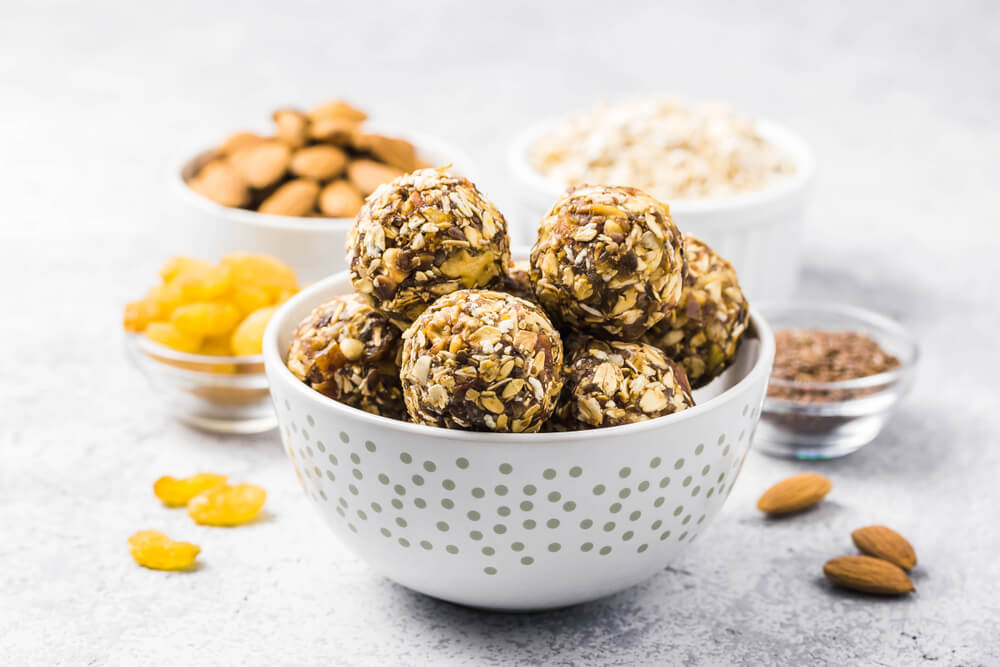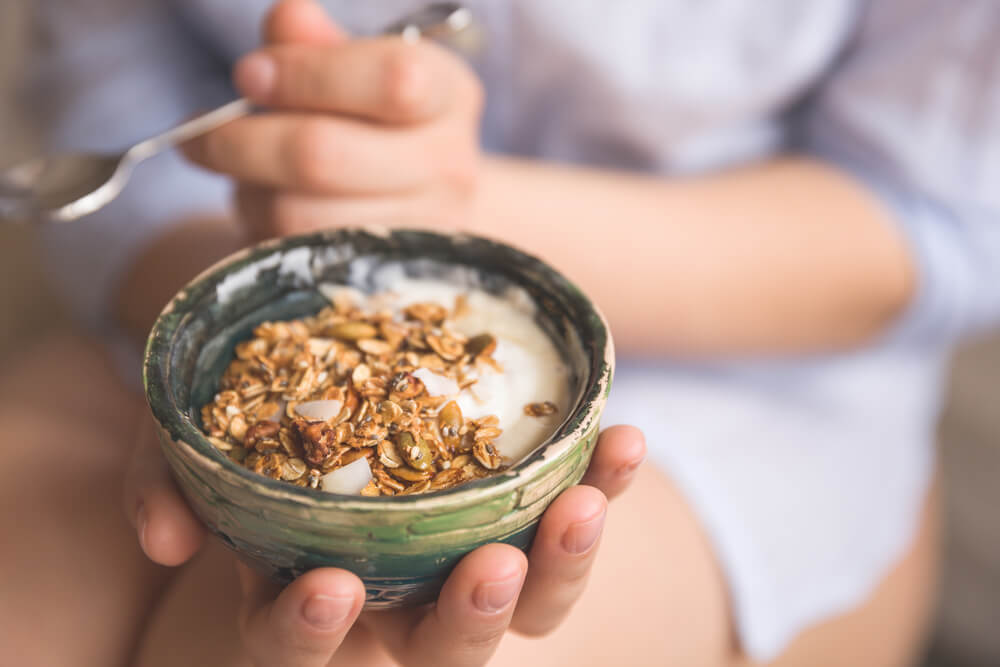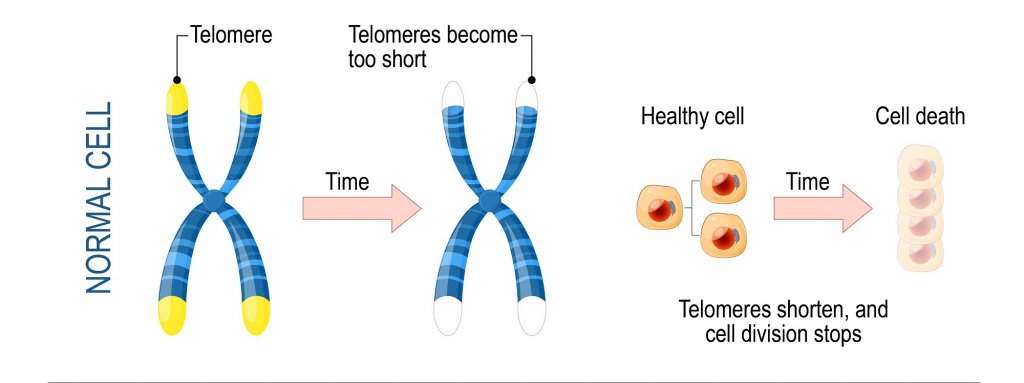Surprising Ways Mixed Nuts Can Benefit Your Health
Exploring the Powerful Benefits of Nuts for Your Cognitive and Overall Health
For a nutrient-dense snack that contributes to weight management, while also providing advantages for heart and brain health, consider incorporating a daily portion of assorted nuts into your eating routine.
Nuts and seeds are a nutritional powerhouse, boasting low carbohydrate content and an abundance of fiber, protein, antioxidants, crucial vitamins and minerals, as well as an assortment of beneficial phytochemicals. Research suggests that including nuts and seeds in your diet could potentially diminish the likelihood of various conditions such as elevated blood pressure, heightened cholesterol levels, and inflammation, which are linked to the development of ailments like heart disease, diabetes, cancer, and stroke.
Nutritional profile of mixed nuts
While nuts and seeds are packed with essential nutrients that can enhance a balanced diet, it’s advisable to consume them in moderation due to their elevated fat and calorie content. It’s important to note that the fats found in nuts and seeds are primarily of the unsaturated variety, including beneficial omega-3 fatty acids that promote heart health. Nonetheless, like any indulgence, overconsumption can undermine your efforts to opt for healthier, low-fat, and low-calorie snack choices.

What makes nuts and seeds so beneficial?
Nuts and seeds are considered superfoods, offering a multitude of health benefits even in small quantities.
Here are some advantages:
- Positive impact on Lipid Profile: consuming nuts in moderation is unlikely to adversely affect your lipid panel. In fact, research suggests that they may contribute to reduced bad cholesterol levels.
- Source of Phytosterols: Nuts and seeds also include sources of phytosterols, a substance that holds potential in cholesterol reduction. These naturally occurring sterols contribute to the health benefits of these foods.
- Rich Source of Omega-3 Fatty Acids: While commonly associated with fish, omega-3 fatty acids are also prevalent in nuts. These essential nutrients play a role in maintaining the structural integrity of cell walls throughout the body. Maintaining a balanced intake of omega-3 fatty acids is also crucial for preventing potential imbalance linked to neurodevelopmental disorders.
- Rich in Dietary Fiber: Nuts and seeds offer a significant source of dietary fiber, which plays a key role in regulating the immune system, combating inflammation, and promoting regular bowel function. This fiber content is particularly beneficial for maintaining gut health. For individuals aged 50 and above, the Institute of Medicine recommends a daily intake of 25 grams for women and 30 grams for men. A mere handful of nuts supplies nearly four grams of fiber. A diet high in fiber can also support the growth of beneficial gut microbes, which play a role in producing short chain fatty acids, which is important for gut health and can potentially influence brain health through various pathways.
- Rich in Vitamin E and L-arginine: Vitamin E, present in substantial amounts in nuts and seeds, contributes to the prevention of arterial plaque formation. This plaque buildup, if unchecked, can lead to conditions like heart disease, angina, and cardiac arrest. Additionally, L-arginine, a component found in these foods, aids in enhancing blood flow by increasing the flexibility of artery walls and reducing the likelihood of blockages.
- Good source of protein: Nuts and seeds encompass varying levels of protein content, making it beneficial to consume a diverse range. Protein is essential for cellular repair and regeneration. For optimal intake, protein should constitute approximately 10 to 35% of your daily calorie consumption. This equates to around a minimum of 50 grams of protein per day for adults.
- Antioxidant Powerhouses: Within nuts and seeds lie a rich reserve of antioxidant vitamins and phenolic compounds. These compounds play a role in reducing inflammation and alleviating oxidative stress. Oxidative stress triggers an internal imbalance, allowing an excess of free radicals within the body’s cells. Research shows that by neutralizing these free radicals, nuts and seeds have demonstrated the ability to effectively mitigate oxidative stress, thereby promoting overall health and reducing the undesirable effects of aging.
- Other possible benefits to include:
- Support the production of neurotransmitters, such as dopamine and serotonin, which regulate mood and behavior. Thus, reducing the risk of depression and anxiety.
- Boost energy levels and combat fatigue, which can positively impact cognitive performance.
- Nuts have a low glycaemic index and can help regulate blood sugar levels. Stable blood sugar levels are important for brain health and reducing the risk of cognitive decline.
While nuts can be a beneficial component of a brain-healthy diet, it’s important to adopt a comprehensive approach to brain health that includes a well-balanced diet rich in a variety of nutrient-dense foods, regular physical activity, adequate sleep, stress management, and cognitive engagement.
How often should nuts and seeds be eaten?
As mentioned above, nuts and seeds are calorie-dense, so portion control is key. A standard serving size is about 1 ounce (28 grams) per day, which is roughly a small handful. This provides nutritional benefits without excessive calories. Substitute between different types of nuts and seeds to ensure you are getting a broad spectrum of nutrients.

How to incorporate them into your diet
- Add pumpkin seeds to salads, oatmeal, rice, sweet potatoes, and quinoa for added flavor, fiber, and texture.
- Incorporate nuts and seeds—such as pine nuts, sunflower seeds, chia seeds, and pumpkin seeds—into smoothies. These choices are excellent sources of protein, fiber, and omega-3 nutrients.
- Create your own trail mix by blending nuts and seeds, and then adding the mix to yogurt or enjoying a handful as a snack.
- Nutty Pesto: Blend nuts like pine nuts or walnuts into homemade pesto to serve over pasta, grilled vegetables, or as a dip.
- Stir-Fries: Sprinkle seeds (e.g., sesame or pumpkin seeds) over stir-fried dishes to add a nutty crunch.
- Baked Chicken or Fish: Use crushed nuts or seeds as a coating for baked chicken or fish, adding a flavorful and nutritious crust.
- Fruit Parfaits: Layer yogurt, fruits, and a sprinkle of chopped nuts or seeds to create a nutritious and indulgent dessert.
- Nutty Bites: Create small energy bites by combining nuts, seeds, dried fruits, dates, and honey. Roll them into bite-sized balls for a sweet treat.
- Frozen Yogurt Bark: Mix chopped nuts and seeds into Greek yogurt, spread it onto a baking sheet, and freeze for a delicious frozen dessert.
In the pursuit of optimal brain health, nutrition plays a crucial role.
Nutrition stands as a core component within the Aviv Clinics Dubai by DP World Medical Program. Building the right nutrition plan involves a comprehensive analysis, taking into account your dietary intake, habitual behaviors, personal preferences, existing health conditions, and aspirations. The outcome is a personalized roadmap intended to provide your brain and body with the precise combination of nutrients and energy necessary for the rejuvenation process.
Our approach is built upon a comprehensive assessment of your dietary intake, habits, preferences, health conditions, and individual objectives. Throughout the Program, your dedicated dietitian closely monitors your nutritional consumption to ensure that you are deriving the maximum benefits as you make progress.
If you’re interested in understanding how our program operates and its advantages, Contact the clinic to learn more.
Anti-Aging Effects of Hyperbaric Oxygen Therapy (HBOT) Shown to Reverse Aging Biomarkers in Humans
A landmark study in Israel has found that hyperbaric oxygen therapy (HBOT) can reverse two key biological signs of aging in humans—the first study to ever make this finding.
Published in the peer-reviewed journal Aging, the study shows that it is possible to target and reverse the aging process at the basic cellular-biological level.
This breakthrough in the biology of aging provides scientists with a new foundation for investigating ways to slow the aging process. Learn more about the empirically validated anti-aging effects HBOT can have.

The 2 Key Biological Signs of Aging
Two common signs of biological aging are:
- Shortening of telomeres on our chromosomes: Telomeres are like the hardened ends of shoelaces. They protect the ends of chromosomes from deterioration. As we age, our telomeres naturally shorten, but a yearly decrease of their length by 20–40 bases is associated with serious illnesses.
- Accumulation of senescent cells: Senescent cells are cells that are still alive, but have stopped multiplying. Over time, these cells can accumulate in the body and their increase contributes to age-associated conditions.
In the groundbreaking study, patients aged 64 and older underwent a series of unique HBOT anti-aging programs. Multiple blood tests conducted during the study showed “HBOT may induce significant senolytic effects including significantly increasing telomere length and clearance of senescent cells in the aging populations.”
The “Holy Grail” of the Biology of Aging
A different study released in 2020 showed that HBOT also improves cognitive functions of memory and processing speed, among other areas.
The studies have been conducted over a decade of research and caused Dr. Shai Efrati—the study’s co-author—to develop a unique medical program available at Aviv Clinics.
According to Efrati, director of the Sagol Center for Hyperbaric Medicine and Research at the Shamir Medical Center in Israel:
“After dedicating our HBOT research to exploring its impact on the areas of brain functionality and age-related cognitive decline, we have now uncovered for the first time in humans HBOT’s biological effects at the cellular level in healthy aging adults.”
Efrati called telomere shortening “the ‘Holy Grail’ of the biology of aging” and developed the Aviv Medical Program based upon the results testing, study, and research.
“The significant improvement of telomere length shown during and after these unique HBOT protocols provides the scientific community with a new foundation of understanding that aging can, indeed, be targeted and reversed at the basic cellular-biological level.”


Study Findings on Anti-Aging Effects of HBOT
- “Telomeres length of T helper, T cytotoxic, natural killer and B cells increased significantly by over 20% following HBOT”
- “There was a significant decrease in the number of senescent T helpers by -37.30%±33.04 post-HBOT.”
According to Dr. Amir Hadanny (co-author of the study) the pioneering study has:
“Opened the door for further research on the prolonged cellular impact of HBOT to reverse the aging process. In just three months of HBOT, we were able to achieve such significant telomere elongation—at rates far beyond any of the currently available interventions or lifestyle modifications.”
There is also the potential for HBOT to be used as an anti-aging mechanism for skin care. HBOT may serve as “an important component in skin rejuvenation, treatment of photoaging skin, and improvement in skin complexions.”
Notable Individuals Who Have Pursued HBOT
Due to the impressive data-backed results, many notable individuals have decided to pursue HBOT themselves:
- Michael Phelps: 28-time Olympic medalist used hyperbaric oxygen therapy to help with his recovery from training. The high-altitude conditions and boosted levels of oxygen have aided in helping Phelps bounce back from his workouts and continue to win medals throughout his 24-year career.
- Justin Bieber: Having been diagnosed with Lyme Disease and dealt with drug abuse, the pop star regularly uses hyperbaric oxygen therapy. Bieber, who also mentioned he struggles with anxiety and depression, notes that HBOT helps alleviate his stress levels.
- Alon Day: The demands of professional racing are high, with reaction times measured in fractions of a second. Watch three-time NASCAR Whelen Euro Series champ Alon Day explain how the treatments offered by the Aviv Medical Program ensure he meets the sport’s high demands — both mental and physical.
- Watch video here
The Aviv Medical Program: What We Offer
The unique HBOT protocol from the extensive research outlined earlier is available in the United States only at Aviv Clinics. The Aviv Medical Program may include a combination of:
- In-depth review of health history
- Comprehensive physical exam
- Highly advanced brain imaging scans
- Neurological and neurocognitive tests
- Body composition analysis
- A detailed report of our assessment findings
- Cognitive training
- Physical training
- Dietary coaching
- Hyperbaric oxygen therapy (HBOT)
- A post-program report of your improvements and recommendations for future progress
Each patient undergoes extensive assessments and evaluations before, during, and after their HBOT sessions to monitor and analyze progress.
Here’s What Our Clients Have to Say
Aviv Clinic’s clients are a testament to the benefits our program offers. We’ll let these reviews speak for themselves:
- “I can’t thank the team at Aviv enough for helping me feel better than I have in over twenty years. I have more energy, more focus and live a healthier and more fulfilling life. Your support and encouragement has made a total difference in my life. Thank you for all you do.”
—Barbara Christoph
- “My wife and I took the program together and had an amazing experience. Both of us are healthier and happier than before and are continuing on with what the program showed us. An amazing staff led by leading edge doctors who are second to none. I recommend this program to anyone suffering from the ailments of aging and loss of cognition.”
—Andy Smith
- “My goal for attending the Avivprogram was healthy aging. I also wanted to manage stress better, address chronic back issues, gain weight and improve cognitively…I have experienced several unanticipated and unintentional benefits of the Aviv program: I have reduced my alcohol consumption. Never having been one to turn down a glass (or two) of wine, I just don’t have the desire to drink as much; My skin seems smoother and more supple. I am told I look younger and that is always nice to hear; I have made incredible friendships through the Aviv program and met some celebrity athletes and renowned physicians. I am particularly grateful to an orthopedic surgeon I met who was also participating in the Aviv program that helped me focus my attention on managing my osteoporosis.”
—Zizi MacKinnon
More information about Aviv Clinics Dubai, click here.
The clinic offers free phone consultations for interested individuals.
Contact the clinic to learn more about the unique program.
Meditation and Brain Health: Benefits Backed by Science
The COVID-19 virus has left us all more stressed than ever before, but there’s one group of people that the pandemic has hit especially hard: older adults. A recent poll conducted by the National Poll on Healthy Aging interviewed 2,000 adults from the ages of 50 to 80. More than half (56%) of the participants reported struggling with feelings of isolation during the pandemic, a dramatic increase from 27% in the 2018 poll.
Long hours spent indoors away from family and friends can have us all feeling low, and the stress and loneliness can wreak havoc on your mental health. That’s why many older adults are turning to the practice of mindfulness meditation to cope with stressful feelings during the pandemic.
Just like washing your hands to get rid of germs, meditation is an excellent way to help cleanse your mind of troublesome thoughts, and practicing mindfulness can do more than just help you relax. Taking a few minutes out of your day to ground yourself in the present moment is one of the most rewarding things you can do for your mental health, and the benefits are backed by science.
The science-based Aviv Medical Program is centered on the innovative hyperbaric oxygen therapy, cognitive and physical training, plus nutrition coaching. Supportive wellness practices, such as meditation, help to create a truly holistic approach to enhancing cognitive and physical performance.

What is meditation? The art of mindfulness
Mindfulness meditation is the art of being present in the here and now.
It’s about taking a few minutes every day to clear your mind of distressing thoughts and engaging with what’s right in front of you.
Think of it as a workout for your brain. In the same way that you might lift weights to keep your body strong, meditation is a way to train your mind and increase your focus and awareness. It’s not a spiritual practice or a mystical art; it’s a learned skill and anyone can learn to meditate, regardless of age.
5 Benefits of meditation backed by science
There are several proven benefits to meditating regularly. Numerous studies have shown that mindfulness practices like meditation and yoga can improve all sorts of mental health problems. From easing anxiety and depression to stalling memory loss in Alzheimer’s patients, here are our top 5 benefits of meditation.
1. Slows the progression of Alzheimer’s disease
Although many people dismiss lapses in memory recall as a side effect of growing older, there’s no scientific evidence to suggest memory loss is a natural side-effect of aging. On the contrary, forgetting valuable memories doesn’t have to be the new normal for older adults.
Meditation has been proven to improve memory recall in adults in as little as eight weeks. Research also shows promising results in the use of mindfulness to slow the progression of cognitive conditions like Alzheimer’s disease and dementia. Patients who practiced mindfulness exercises reported reductions in cognitive decline and stress levels, and overall improvements to their quality of life.
Mindfulness isn’t only beneficial for those diagnosed with cognitive conditions, either. Studies have also shown that caregivers of those with cognitive impairments can benefit from the stress reduction of practicing meditation. In other words, everyone can benefit from the boost to cognitive centers of the brain.
2. Improves focus and keeps your brain sharp
Practicing mindfulness can keep your brain active and in good shape, no matter how good your memory is. You don’t have to be a seasoned expert. Even beginners can reap the benefits of mindfulness meditation.
In one study, participants who listened to a 10-minute meditation tape experienced increased attention spans and focus when completing a test compared to those who didn’t meditate beforehand. One researcher further confirmed that people who meditate regularly consistently perform better on focus-related tasks. The same study also found that meditation calms the areas of the brain associated with mind-wandering and spontaneous thoughts, helping you stay focused on what you are doing in the present.
3. Combats insomnia
Getting a good night’s rest is more important than ever for seniors and older adults. Sleep is the vital period when our minds cleanse themselves of harmful waste. Yet current research estimates 10-30% of people are affected by chronic insomnia, with older adults showing more susceptibility to sleep disturbances.
A randomized trial found that mindfulness meditation significantly improved sleep quality in middle-aged and older adults. The lowered stress levels provided by meditation helps clear your mind from troubling thoughts, which can make sleep come easier. If you have trouble sleeping at night, turn off your screens and try meditating for a few minutes before bed.
4. Fights anxiety
Although everyone worries from time to time, harboring too much stress in your body can be unhealthy. According to researchers, anywhere from 3-14% of all older adults meet the diagnostic criteria for generalized anxiety disorder. Unchecked anxiety and stress can worsen health conditions like fibromyalgia and lead to other mental health problems like depression.
If you want to take control of your anxious thoughts, meditation may be the solution. Studies have shown that mindfulness meditation can alleviate symptoms of generalized anxiety disorder and reduce stress levels, helping you clear your mind of fears and worries.
5. Improves depression and overall mood
Loneliness was already a common problem among older adults and retirees, but the COVID-19 pandemic has made it worse. Going out in public and visiting your family isn’t an option for many older adults, and the isolation can worsen feelings of loneliness and despair
Practicing mindfulness can help you manage these difficult emotions and improve your overall mood. Studies have shown that mindfulness training reduces feelings of loneliness and isolation, helping participants be happier in the present moment.
Mindfulness training has been shown to help reduce feelings of depression in adults. Those who practiced meditation therapy reported fewer symptoms of depression compared to their counterparts who didn’t meditate at all. Practicing mindfulness every day reminds you not to stress over every little thing, helping you stay calmer and more in control of your emotions.
How to start a mindfulness meditation practice
You don’t need any special equipment or training to get started. All you need is a comfortable place to sit and the willingness to give it a try. Here’s a quick guide to get you started:
1. Find a quiet space where you can relax, free from distractions.
If you’re inside, make sure that all televisions and electronic devices are turned off.
2. Sit in a comfortable position and breathe gently.
3. Pay attention to each inhale and exhale.
4. Focus on all the sensations of your body as you breathe.
5. Release any tensions you may be holding until you are completely relaxed.
6. Continue to breathe in and out as you focus on your body’s inner sensations.
7. If your mind wanders, that’s ok. Just re-focus on your breathing and start again.
8. Keep going for 5-10 minutes or as long as you’d like to meditate.
Try to meditate at the same time every day to establish a routine. If you don’t want to sit in silence, you can find guided sessions via apps on your smart devices, or you can play some calming music to help you focus. For added benefits, try meditating outside on the porch or in a garden. Doing your daily session in nature can calm you even further, helping you make the most of your mindfulness practice.
The bottom line
Mindfulness meditation is one of the most positive things you can do for your mental health and emotional well-being. It doesn’t take long to do, either. Having a simple routine to keep your mind in-shape can show benefits across all areas of your life. From improving memory recall to lowering stress levels and improving your sleep, practicing meditation can keep you more engaged in the present moment, helping you stay happy and calm during the best years of your life.
Aviv Clinics delivers a highly effective, science-based treatment protocol to enhance brain performance and improve symptoms of conditions such as traumatic brain injuries, fibromyalgia, Lyme, and dementia. The Aviv Medical Program’s intensive treatment protocol uses hyperbaric oxygen therapy and takes a holistic approach that includes brain training to achieve optimal results. Based on over a decade of research and development, the Aviv Medical Program is customized to your needs.